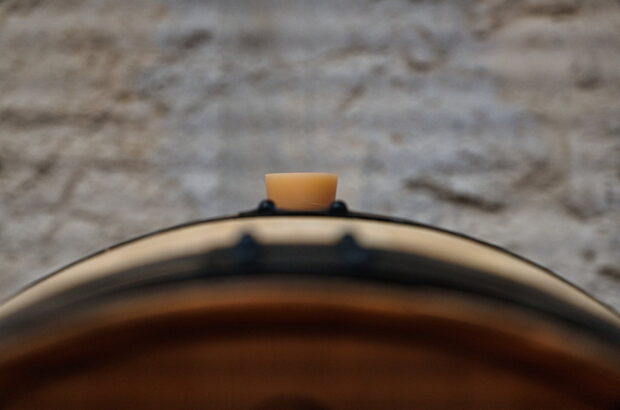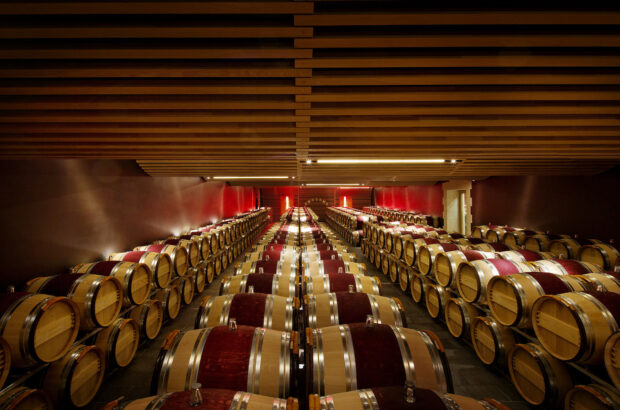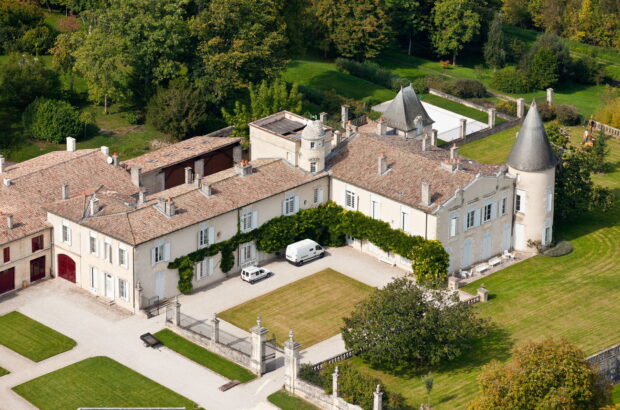Justin Moran had no experience in the Australian wine industry when he co-founded The Hidden Sea wine label to tackle ocean pollution. Launched in 2015, to date The Hidden Sea has removed 15 million plastic bottles from the ocean. The goal for 2023 is 24 million plastic bottles – and one billion bottles by 2030.
‘My entrance into the wine industry is probably not like most others. People told me I’d lost my mind when I got involved in wine. We took on a facility not knowing anybody; I’d never crushed a grape or anything. We took over the old Stonehaven facility which was a 12,000 tonne winery with a dream to build a brand with purpose. That was back in 2013. And it’s been a baptism of fire.’
‘Why the ocean? Why plastic? It’s very simple for me, I’ve seen the destruction. I can’t talk about global warming. I’m not a scientist. But what I’ve seen from a young age, my early teens, 20s, travelling around the world, to now: there is plastic everywhere. WWF reports that all of us in our life consume 57 kilos of plastic per annum. 3% of that ends up in the ocean somewhere, somehow.’
‘My philosophy is that if you’ve got the ability, you have a responsibility to do things right. For me it was about sustainability. How can I use my business to do good?’
‘I started very young. My first business was 15, when I was still in school. When I was 18 I had 28 full time staff. Then I sold that business and didn’t go to university, went into retail food, then went into hospitality, restaurants and bars.’
‘Our brand has been linked to the ocean since the very beginning. Where our vineyards lie and our winery – which is in Coonawarra and along the Limestone Coast – that region was once covered by the Great Southern Ocean. So we had a series of ice ages over time, and the ocean retreated leaving fossilised limestone. As you can imagine the terra rossa soil down there is great for growing grapes.’
‘Wherever I am in the world, I drink those wines that are in the market. So in the UK, I’m drinking UK sparkling – which is really good by the way. Sangiovese, Italian light styles, is probably where I go to on a daily basis. German Pinots I love.’
‘Think about what you’re doing. You don’t need to buy water in a bottle – or anything where it’s going to be one use. Think about it. We’re not all perfect but just to try to be conscious of your footprint. And just start with the smallest possible thing you know, don’t try and do everything at once. No-one can do everything, but everyone can do something.’
‘There was a clear strategy: contract processing to fill the winery; premium bulk wines to build cash; the third part was to build a brand with purpose. And I’ve still got the plan on the back of a piece of A4 paper.’
‘I focus on our consumer: we make premium wines that matter for people that care. We say socially conscious consumers, but this is not just about The Hidden Sea, creating change. It’s as much about empowering our consumers to make change happen and allowing them to feel a part of something bigger than themselves.’
‘We have a myriad of partners around the world. And that’s because we’ve got a global problem, right? And our ocean connects us all. However, we need local action. So in the UK Marine Conservation Society, we’re actually working on a project right now with SailGP, a sustainable sailing event happening in Plymouth, and they’re doing a purpose and impact statement from pre- and post-race. They do 600 beach clean-ups around the world.’
‘It’s 250,000 kilos of plastic we’ve pulled out [of the ocean] just by selling a product that we love and we’re passionate about. So that becomes really rewarding. Now people talk about how proud they are to sell our brand. It’s really gratifying. It’s money-can’t-buy stuff. So we can’t stop this momentum. We’ve got to make sure that we deliver on the promise.’
‘When people say what’s your favourite wine, I look them straight in the eye and say: “The wine I’m drinking now”. I’m very much an in the moment person. You can have the worst wine in the world, with the best people and guess what, it’s the best wine. I think it’s very much about the context; where you’re at.’
‘I’ve been told by many people, from the beginning, that what I’m trying to do is not going to work. From taking on the winery and getting it profitable, through to building a brand with purpose and engaging with people. And that’s one part of what inspires me to keep going.’












